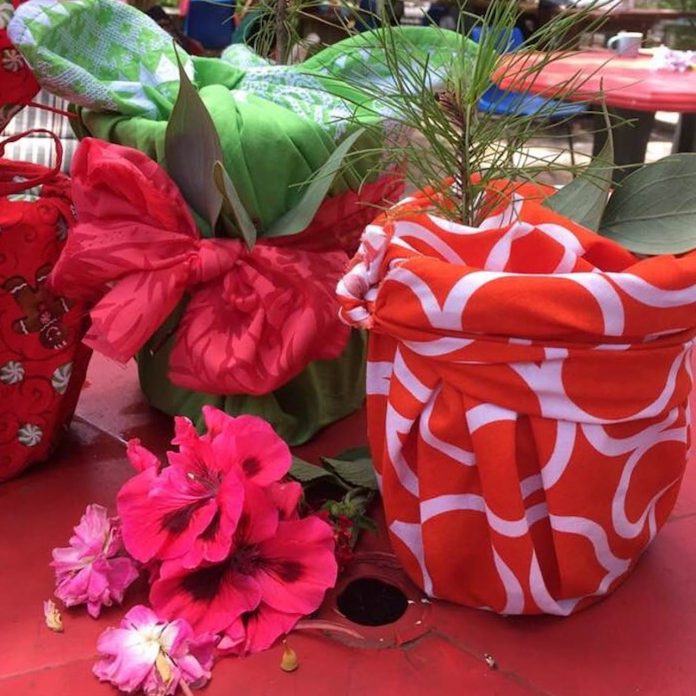My Christmas memories, especially from the years when we had young children, are of a huge amount of preparation stretching over weeks. Meal planning, shopping, choosing and wrapping presents, decorating the house, baking and food preparation. The big day dawned to a frenzy of unwrapping and eating. Then came cleaning up the mess. Wrapping paper and ribbons, envelopes, cardboard boxes, plastic, food leftovers. The fridge was packed to the gills with leftover turkey, bowls of salad and tubs of cream and dressings. Perishable foods posed a catering challenge of big and sometimes wasteful proportions.
On a mission to reduce waste, I’ve picked up a few ideas to share with you.
It starts with shopping. According to a Gumtree survey in 2020, millions of Australians may be waking up with more than Christmas leftovers, as over 19.3 million unwanted gifts were received last year. The survey found that 53 per cent of Australian adults, the equivalent of 8.5 million people, received at least one unwanted Christmas gift, equating to $572 million of unwanted Christmas spending. Clothes and accessories topped the list for unwanted gifts (20 per cent), followed by beauty products (15 per cent).
I have a nothing-bought agreement with a group of friends. Birthday and Christmas presents are grown, hand-made or cooked. Made-with-love gifts are so special. Our family respond to hints about what is needed, for example clothing, cookware and art materials, or a treat such as a voucher for a restaurant meal.
Next the wrapping. What a shame to see costly gift wrap and ribbon ripped off and discarded. One easy solution is to use fabric. Delve into your sewing cupboard or pick up fabric off-cuts at a charity store and let your imagination run wild with torn-off strips for ties. You might suggest the recipient recycles the fabric for the next gift they wrap, or you could take it back to use again. A colourful tea towel is useful wrapping.
My pet hate is plastic. So many toys and stocking fillers are cheap plastic items that hardly last beyond Christmas. Add to that the horrible hard plastic that encases many items and the plastic cutlery, straws and plates used for parties and picnics, and it’s a waste nightmare. Roughly 3.5 million tonnes of plastic was used in Australia in 2018–2019, equivalent to about 100kg per person, and the Bureau of Statistics tells us that 84 per cent of plastic used is sent straight to landfill. You can find heaps of ways to reduce plastic waste on the Plastic Free July website.
Next comes food preparation. Australian households throw away 2.5 million tonnes of edible food each year – that equates to nearly 300kg per person! Food waste also harms the environment. Rotting food in landfill produces methane, which is 21 times more potent than carbon dioxide as a greenhouse gas. The first step is shopping. If you are catering festive meals, plan the menu, make a shopping list and stick to it to save money and waste. Try to avoid impulse buying, especially refrigerated and baked foods. Check the ‘use by’ date to make sure that the item has the sufficient storage life for when you intend to use it.
Where possible, let your guests serve themselves to dishes rather than piling their plates. Get creative with leftovers. Some will freeze well. I love beeswax wraps. They can replace plastic wrap and extend storage life. Dishes like frittata are a fantastic way to make a meal of a variety of ingredients. You can make croutons from stale bread – just cut into pieces and place in the oven to dry roast. Look up a recipe for summer pudding or bread pudding to use stale bread slices. Tomatoes going over-ripe will make a pasta sauce to freeze for later. Check the fridge for items approaching their use-by date and use them first.
If you really have to discard food scraps, put them in the compost to feed your garden. If you don’t have a compost bin, you can dig a small hole between plants and bury veggie scraps, then cover with soil. They will rot and add to soil nutrients.
Enjoy the festive season everyone. Be kind to each other and the earth.




































